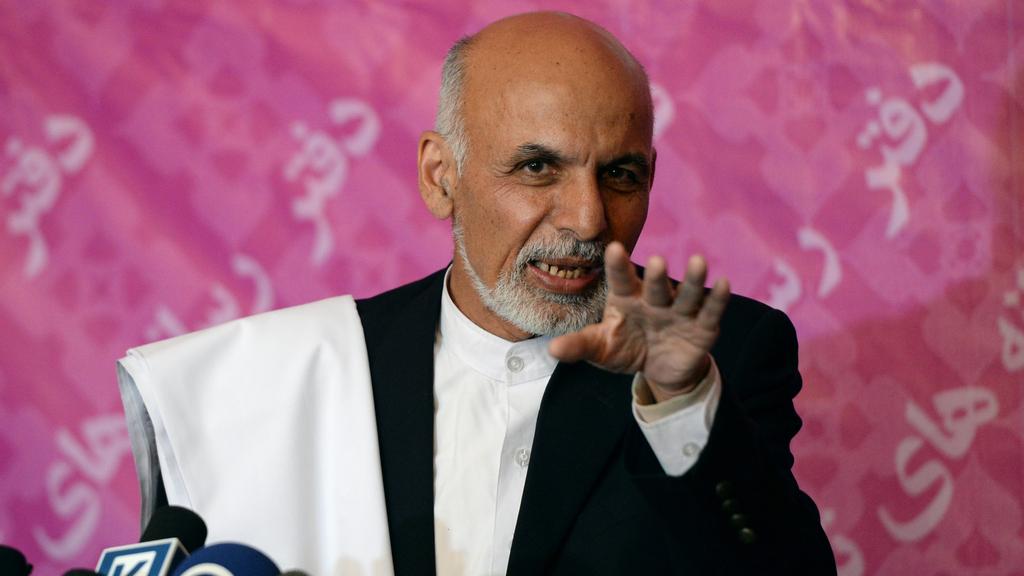Although the people of Afghanistan are made to believe that their country has been hell-like because of “foreign” interference, the main barrier for the country’s progress has been its transcending tribal ruling elite or “intelligentsia,” particularly, those with eternal love for foreign patronage.
Unlike some other parts of the world where leaders seek legitimate means to come to power and protect their people against foreign meddling, the “Afghan leaders” seek foreign meddling against their people. Through such shameful patronage, they come and remain to power to serve the patrons.
Because of this, Afghanistan has never had a truly elected leader since the country’s inception in 1747. They have all been client kings installed by foreign patrons to protect their interest in Afghanistan while containing the country’s population.
Recently, Russia has started to make its influence felt in Afghanistan by “supporting the Taliban” against the American-installed Kabul administration. This increasing Russian prying is part of the historical client king making and breaking. The upcoming presidential elections intensify this process, as competing “Afghan” tribal ruling elites are seeking their foreign patrons’ support for the clientage position in their “own country” against their “own people.”
‘Afghan’ Client Kings Makers and Breakers
Almost every “Afghan” ruler has been a British, Russian or an American client historically. This client-king making took an institutionalized patron-client shape with the rise of Abdur Rahman Khan whom British India installed as part of its imperial change of policy from direct to an indirect rule of Afghanistan after the second Anglo-Afghan war in 1880.
Obviously, since the U.S.-led military intervention in 2001, the “Afghan” leaders have been U.S. made, first Hamid Karzai and currently Mohammad Ashraf Ghani.

Although Russia had remained fairly quiet during Karzai’s reign, the country has been agonized during the four controversial years of Ghani’s tenure, particularly with mysterious rise and fall of “fake” ISIS fighters in Afghanistan’s northern provinces – Russia’s backyard.
Consequently, Russia decided to bring the Taliban under its wings to protect its interests in Afghanistan and influence the upcoming presidential elections that are to take place mid-2019.
Russia wants to make sure that the next Afghan president is not Ghani or anyone like him, who in his mandate of serving the American interests will go as far as jeopardizing Russia’s national security.
Previous Russian-American Rivalry
While Russia’s predecessor the Soviet Union was busy poking the American “Empire of Liberty” in its backyard – Cuba – during the Cold War, Afghanistan, through its pro-American “intelligentsia,” revealed itself as the perfect ground for the Americans to reciprocate.
It was in the late 1970s when the Americans began prying into Afghanistan. The country was going through a political rollercoaster. It had just broken away from feudal dynasty to become a republic.
The then de facto President Mohammed Daoud Khan was not only suffering from the dependency of the Soviet Union but also from a rising generation of extreme hyper ethnonationalists who were in search of foreign patrons to topple him.
These rising figures were Nur Mohammad Taraki and Hafizullah Amin (like U.S. Special Envoy for Afghanistan Zalmay Khalilzad and Ghani nowadays), two power thirsty tyrants who initially helped Daoud to end King Zahir’s 40-year dynasty.
Shortly after, in 1978, Taraki and Amin killed Daoud and his entire family. This bloody military coup marked the end of the “Afghan state” and the beginning of the rise of Ghilzai Pashtuns to power for the first time in Afghanistan. The coup also marked the last time Afghanistan had all characteristics of a state.
Taraki and Amin’s oppressive and brutal adventure to power was short-lived. Amin (Moscow believed he was a CIA man) killed Taraki (who had the backing of the Soviet Union and its KGB) in 1979. It triggered the Soviet Union to invade Afghanistan and assassinate Amin a month later.
After Amin’s execution, the Americans opted for supporting the “Mujahidin” against the former Soviet Union in Afghanistan. This is similar to what Russia has started doing to the U.S. with the Taliban these days.
Same Old Story
Now, Khalilzad and Ghani are in the driving seat in Afghanistan with similarities to Taraki and Amin of the late 1970s. Ghani seems to be exactly what Amin was: an extreme Ghilzai Pashtun ethnonationalist, a “graduate” of the Columbia University, and a proud American client.
Even though Khalilzad and Ghani have enjoyed decades of friendship and years of adventure in power in Afghanistan, they seem to be turning against each other in their “peace” politicking in recent days apparent in Ghani’s youthful National Security Advisor’s implicit tweets.
https://twitter.com/hmohib/status/1075624436106174464
Also, Ghani has seemingly retreated from his die-hard pro-Taliban policy by appointing Amrullah Saleh, one of the most prominent anti-Taliban military figures and articulated anti-Khalilzad politicians, as the Minister of Interior Affairs.
Perhaps, Ghani is not accepting Khalilzad’s king-making mission in Afghanistan this time around. Lately, Ghani has developed some false beliefs that he is the “elected” leader of an “independent” country, albeit he is an American made.
Nevertheless, he is putting a fight against Khalilzad and refuses to leave the reign. How far they will go with their power grabbing struggle is unclear, but they have surely agonized Russia while frustrating their main patron the United States.
Given the long-lasting consequences of such power grabbling rivalry among similar competing “Afghan” tribal ruling blocs in the 1970s, this is bad news for Afghanistan. It is time for the people of Afghanistan to stand up collectively and shape their future by renouncing the old guards of “Afghan” tribalism and saying no to foreign patronage.
Otherwise, it will be the same old story in Afghanistan: client-transcending tribal ruling elite get to rule the country with the mandate of serving the patrons – the U.S. or Russia – while inflicting more misery and suffering to their own people.
Disclaimer: The views and opinions expressed here are those of the author and do not necessarily reflect the editorial position of The Globe Post.




















